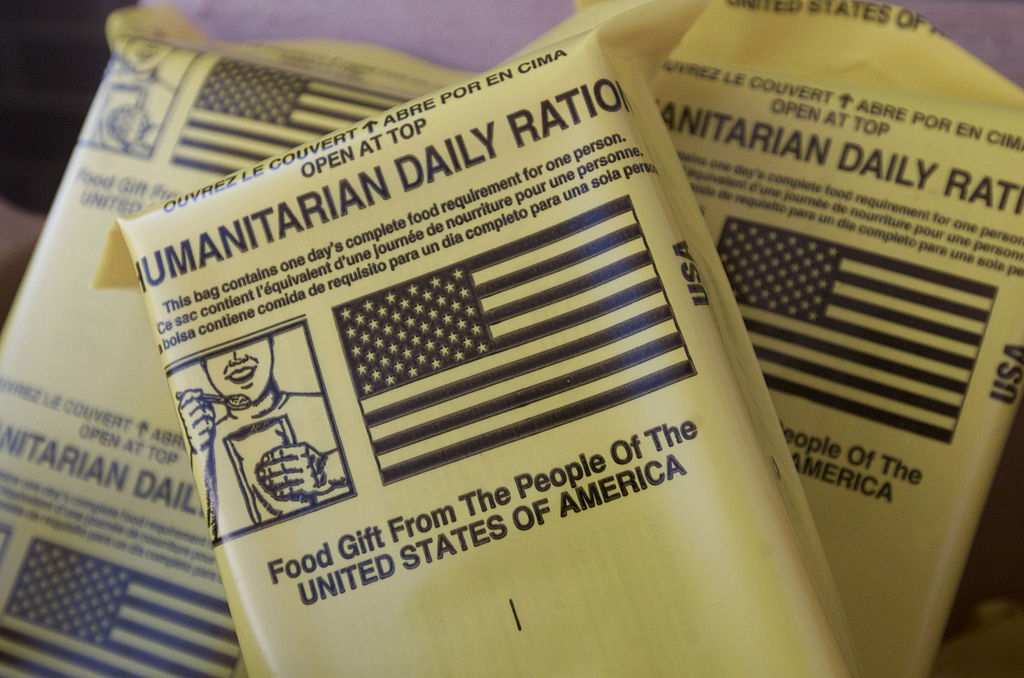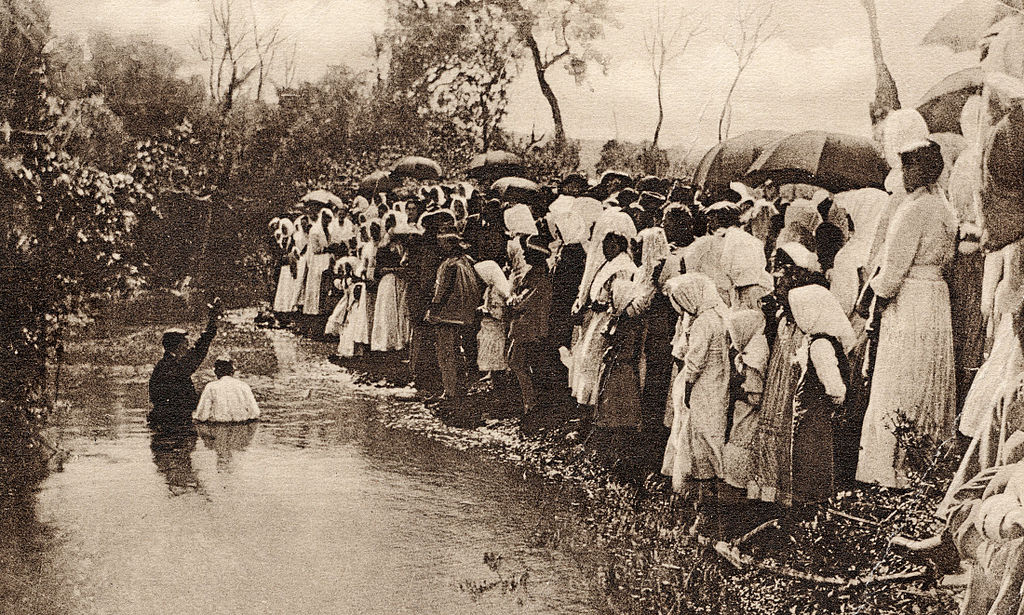
Any scholar concerned with the intersection among issues of religion, humanitarianism, ethics, and international relations would be thrilled to be in conversation about one’s work with Diane Moore, Michael Barnett, Emma Tomalin, Atalia Omer, and Joshua Lupo. I am, too—both honored and stimulated, intellectually and ethically—by the generous and insightful readings and comments brought forth by each of these interlocutors to my book. In this response, I take on issues of ethical precarity and staying with the trouble, whether Christianity (or any religious tradition) has a core, decoloniality, the problem of humanitarianism and the human, objectivist social science, and fatigue.
Staying with the Trouble
Yes (to Michael), your play on the fatigue of constant wrestling does indeed capture a fair bit of the process of writing, researching, and rewriting the book. But I submit that the notion of fatigue has also been heightened and transformed by the moral turpitude and ethical rawness laid bare by triple pandemics of the year immediately following the initial appearance of my book (in March 2020): the spread of COVID-19, authoritarianism, and the awareness of systemic racism, in the U.S. and globally. (I note that the second and third were present well before March 2020, although they have received fresh attention during the past year.) If I—and many others—were already tired before March 2020, we were almost totally depleted after it. In other words, I am convinced (unsurprisingly for anyone who has read the book) that ethical wrestling is both crucial for any kind of meaningful life, and frequently tiring. Yet neither Michael nor I can claim to know the depths of exhaustion or the sources of renewal necessitated by having to confront racism daily—that intimate, grievous, and permanently unsettling knowledge is reserved for our friends who do not enjoy our intersectional (especially white) privileges.
In this constant questioning, I am honored to be placed by Diane Moore in the company of Donna Haraway. Unsettling knowledge and ontological categories is the name of the game here, and is fundamental to Haraway’s “troubling” as well as the precarity that Moore notes is crucially important throughout my book. This unsettling simply disallows moral absolutisms, as Moore candidly puts it. I love Moore’s exposure of the “generative wonder” that results for Haraway when we acknowledge our complex interrelationships with entire “ecologies of existence.” But if the “biological and social autonomy” emanating from “bounded epistemic abstractions” are false, as Moore notes, can we speak of epistemic and religious traditions at all? This brings us, in other words, to Barnett’s important query about the core of Christianity.
The Core of Christianity?
Whether Christianity, or any religious tradition, has an ahistorically definable “core” is a question that I constantly pushed through my own wrestling throughout the book. The easy answer, perhaps, is that it is not up to me to define a core, because I am a specialist in international relations (and religion), not a theologian or religious leader. Another response is simply no, there is no core, because taking the wide range of interpretations of how to act in any of the book’s historical periods (including the present), simply precludes it. Still, I want to take up Michael’s challenge, at least partially. Writing not as a theologian but as a somewhat educated layperson with experience in the Christian tradition, I think one can identify notions of redemption through incarnational commitment, acceptance and inclusion of all humans regardless of any identity category, the negotiation of living in the world simply and rejecting material accumulation and self-glorification, and the prioritization of communal sustenance (spiritual and material) as critical, if not essential, elements of Christianity. These features singly and together also suggest a suspension of any “strong” notion of temporality, or boundaries between immanent and transcendent worlds. Having outlined these ideas, however, one immediately sees how they are contested: so many “Christians” have historically drawn lines around who is accepted and included in redemptive possibilities, and continue to do so today, and so many have played a major part in instantiating and institutionalizing a linear notion of time that separates the immanent from the transcendent.
If there is one feature in my outline above that ethically troubles me, it is whether the incarnational commitment gives too much focus to the human to the detriment of both non-human forms of being characteristic of all ecospheres and Spirit-centered traditions. Of course Christian theologians— especially those who are feminists—have for some time insisted on Christianity’s responsibility for the earth as a whole (Rosemary Radford Reuther, among others). But a potential displacement or even partial dislodging of the place of the incarnational Christ by the global (yet specifically-situated, according to different indigenous cosmologies) Spirit is another question altogether. It seems to me that indigenous spiritualities at the very least beg this kind of partial disruption of hierarchy. It is the notion of Spirit, in other words, that can lead us to a more decolonial understanding of both Christianity and religion writ large. This is because the idea of Spirit connects to numerous indigenous cosmologies in ways that acknowledge their onto-epistemological sources while allowing a kind of dynamic flowing among and through them to connect where possible with Christianity (and other “world religions”). Thus it is not a replacement for Christian universalism, but rather an acknowledgement of cosmological complexity and possibility.
Decolonial Futures
Both Atalia Omer and Emma Tomalin read Wrestling with God as a call to decoloniality. Given the points made above, I’m delighted that they do, as delving into both Christianity and modernity requires, in my view, numerous levels and forms of decolonial investigation. Here I put their related yet distinct lines of inquiry—stemming both from the book itself and, intersecting with their own work, for future research and humanitarian activism—into conversation to highlight and reinforce several of their observations and insights. Omer draws out the intersectional issues that continually arise across historical periods, and that appear to come out full force in contemporary humanitarianism. Both she and Tomalin note the apparently inescapable compromises Christian humanitarians regularly make with practices of neoliberal governmentality, even, as Omer notes, these compromises are just a genealogical step away from (and so, in her words, “rhyme with”) those made by missionaries vis-à-vis the colonizers. The negotiation of faith and neoliberal as well as colonial forms of modernity is absolutely a major point of Chapter 6 (and indeed, the book as a whole). Yet, I also appreciate Tomalin’s insight that “faith-based” (presumably “international”) humanitarian actors often sit uncomfortably with these pressures, and seek respite in finding alternative modes of interaction with like-minded interlocutors in the sites where they work. (Barnett’s work on World Vision International is also instructive here.) My own interviews with Christian and Muslim humanitarians (some of the results of which have been published elsewhere) echo these insights, as I have found that they have appreciated the opportunity to reflect on the ethical tensions brought forth by their work vis-à-vis both neoliberalism and the war on terror. Still, I note an uncomfortable range of positions vis-à-vis missionary legacies in my ongoing experiences with both western and non-western Christian humanitarian interlocutors. How many Global South as well as Global North Christians promote conversion, and if so, what reasons motivate their promotion of conversion? Is it because of a belief in its intrinsic value or because it is what the faith-based donor wants to see?

These kinds of questions need more investigation, in my view. But they also return us to the relationship between Christianity (or religion in general) and secularism in modernity. In other words, they force us to ask: To what degree does the recognition of the constitutive nature of Christian/secular development in modernity, and the harm done by attempts to ignore it (as Tomalin rightly describes) require the suspension of attempts to maintain a boundary between aid and evangelism or proselytism? I am no fan of proselytism or evangelization, but neither do I think that it is possible to pretend that religious motivations on the part of humanitarians or religious needs on the part of recipients do not exist or must not be part of the humanitarian relationship. And of course Barnett is right to bring forth the suspicion of Christian motivations by Jews (and Muslims), given the all-too-numerous historical precedents.
In short, I think the burden of Omer and Tomalin’s readings of the book accords with my own: that radical egalitarianism requires a reconfiguring of the humanitarian relationship writ large, including allowing the ontological (i.e., cosmological) reconfiguring of both Christian and secular forms of modernity. What we often think of as “modern” has never done away with what we think of as “pre-modern”—not in Christianity itself as it is practiced in many parts of the world (from Ireland to South Africa), and not in secularism, despite violent attempts at suppression. Still, we have not yet figured out how to be truly inclusive of alternate cosmologies in scholarship (certainly not in “the social sciences”) or in humanitarian activism. Doing so of necessity reconfigures the humanitarian relationship, in my view. It does so by levelling hierarchies of knowledge and possibly (hopefully?) even by prioritizing and elevating indigenous perspectives and forms of knowledge. This means that the financial, technical, and religious resources brought to the table by humanitarian aid-givers become no longer dispositive, but simply one set of resources among others that are brought to the table by recipients themselves in a way recognized by all as bearing greater weight. (Donors in this ideal/idyll would simply provide resources, enabling without directing.)
This is in many ways a very modern ideal. Returning to Barnett’s queries, while the bulk of the book does indeed focus on “others” in the Global South (for both conversion and donor proselytism), Chapter 3’s discussion of the extremely disturbing and violent way that Bartolomé de las Casas came to his distinction between “native” Americans on the one hand, and Jews and Muslims on the other—briefly, my discussion aligns very much with Michael’s—is central to the argument. The book’s analysis of the overall relationship between Christianity and secularism, as Omer states so well (as a genealogy of the “symbiosis of Christianity and secular modernity,” including “its perpetuation through other idioms and technologies” over time, while highlighting [Christian] epistemologies on the margins) also allows for, in addition to decolonial perspectives, the very kinds of openings to Jewish (or Hindu, or Buddhist, etc., etc.) rationales in favor of the secular that Barnett also notes, even though they are not the subject of this particular research tome. And Chapter 6 again addresses the othering of Muslims, no matter where they are from.
Religious Pluralism and the Ethics of Scholarship
I also want to engage briefly with several underlying objectivist social science desires that Barnett’s questions reveal. While I partially address Michael’s question about whether the recognition of ethical precarity eventually dissolves what is “Christian” about Christianity in a much earlier article, I note that theologians have long argued about the meaning of religious pluralism and its relationship to religious syncretisms. The “Alliance of Civilizations” as well as numerous other interreligious groups have brought this debate to the fore again (see Tanya Schwarz’s recent book). The most important answer to queries about this meaning has not been articulated by western theologians, in my view, but either by theologians from outside the west or indigenous thinkers. Both the theologians noted in Chapter 6, and scholars such as Silvia Cusicanqui Rivera (see, for example, Marcus Scauso), have dug into the problematic of postcolonial thought, helping us to get unstuck from debates about the contours of religious pluralism so that we can incorporate multiple ontologies and ways of being.
Similarly, Barnett would like me to outline some scope conditions under which ethical change can occur. But the very premise of wrestling in the midst of historical contingency disallows any meaningful enumeration of such conditions. For example, the Black Lives Matter movement cited by Tomalin and the intersectional analysis highlighted by Omer build on historical moments and thus require both contingency and structurally induced repetition. One could perhaps return to a notion of “tipping point” in social movement or diffusion literature to analyze the enormous impact that BLM is currently having on debates within both Christian churches and aid groups (as noted by Tomalin), but such constructions limit the impact of the long-term organizing and even longer-term wrongs that movement activists have lived through. Moreover, the usual purpose of detailing such scope conditions is to be able either to predict or shape the course of future events. While I would love to be able to do so, I submit that to provide fresh genealogical constructions that can illuminate the very real pain that has produced very real ethical challenges is more meaningful as well as likely to have a greater impact on political dynamics. Carefully analyzed, such events and their moral tensions have provided enormous food for thought, analysis, and action for the interlocutors in my book. Recognition of others’ ethical precarity begs us to acknowledge our own.
In short, we cannot eliminate the necessity of constant wrestling. As Omer notes, it is vital for avoiding depoliticization of the modes of thought and action that determine violence and peace, life, and death. It is indeed “staying with the trouble,” as Moore, via Haraway, asserts. I would contend that it is the only ethical way.

